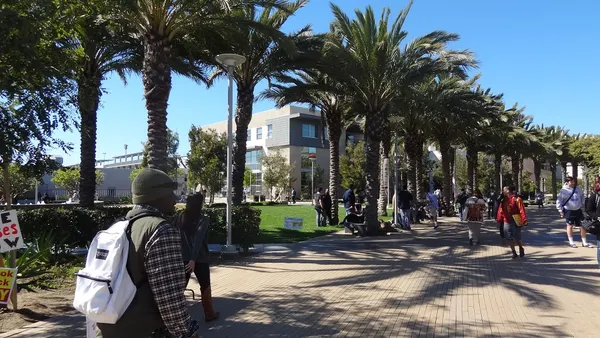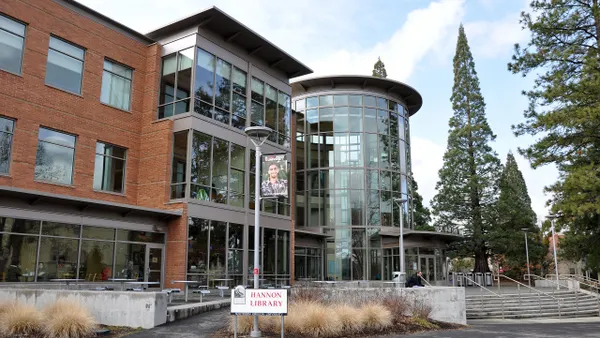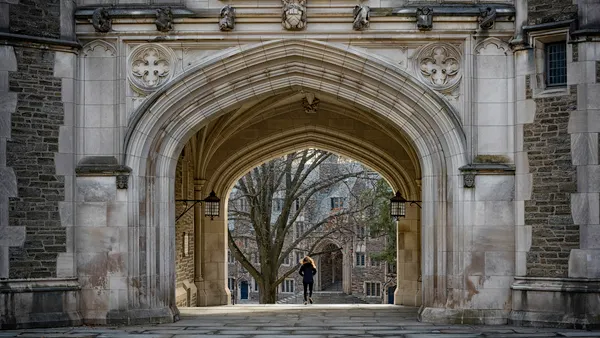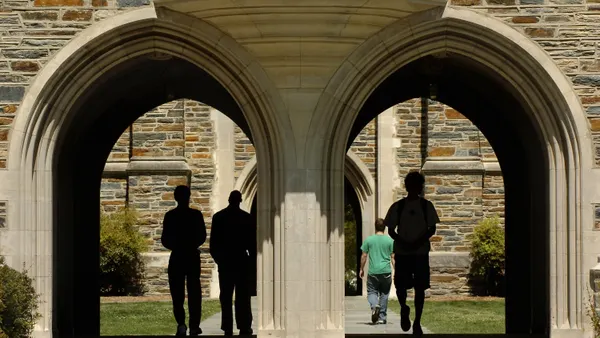Dive Brief:
- Trinity Christian College plans to close after the 2025-2026 academic year amid mounting financial issues, the private liberal arts institution said Tuesday.
- “The board has worked faithfully and tirelessly to consider every possible option in the face of significant and rapidly evolving financial challenges,” Acting President Jeanine Mozie said in a video message.
- In explaining why it was closing, Trinity, based near Chicago, cited persistent deficits, falling enrollment, shifts in charitable giving and financial challenges since the pandemic.
Dive Insight:
Trinity said it worked with advisers on possible solutions to its financial struggles, including “significant programmatic changes” and strategic partnerships with other institutions.
“However, there is no sustainable path forward for our beloved institution,” Mozie said in the video message, in which she appeared with board chair Ken Dryfhout.
Between fiscal years 2020 and 2024, the college’s total assets fell by nearly 14% to $72.3 million. Much of that decline came in its cash holdings, which fell by nearly $8 million during that period, to $5 million. Trinity also reported operating deficits every year during that time.
In June, Trinity reported that it could fail to meet bond requirements for cash on hand and a metric measuring its ability to pay its debt obligations. The college said at the time that it was soliciting donors to help it meet the covenants.
Many of Trinity’s financial woes stem from its shrinking student body and the pressures on small liberal arts institutions. Already small, the college’s fall enrollment dropped to 883 students in fall 2023, a nearly 22% decline from five years prior, according to the latest federal data.
Enrollment declines hurt Trinity’s revenue. In fiscal 2024, net tuition and fee revenue stood at $12.1 million, roughly 14% less than 2020 levels.
The revenue drop also came after a period of steep inflation in higher education and the broader economy. At Trinity, total expenses rose at nearly the same rate as revenue declined between fiscal 2020 and fiscal 2024, reaching $32.9 million.
Mozie was appointed acting president, replacing Aaron Kuecker, just two months before she announced the college’s closure. Prior to that, she was Trinity’s chief operating officer.
Founded with a nondenominational Christian mission, Trinity elected its first board of trustees in 1959. It soon opened a two-year college with just five faculty members and roughly three dozen students on a former golf course, using a renovated clubhouse and pro shop. By 1971, the institution was issuing four-year degrees, and it added graduate programs in 2012.
Trinity plans to hold its last commencement next year for the class of 2026. It is allowing students to take above the max course load per semester to graduate as many as possible, with the rest offered teach-out and transfer options.
The college has teach-out agreements in place for most undergraduate programs with regional neighbors Saint Xavier, Calvin and Olivet Nazarene universities. It is working on agreements for many of its remaining programs.
Trinity said it plans to sell its property after closing to repay its debt. As of fiscal 2024, Trinity owned property and equipment valued at $44.2 million and owed $14.8 million in bonds.














